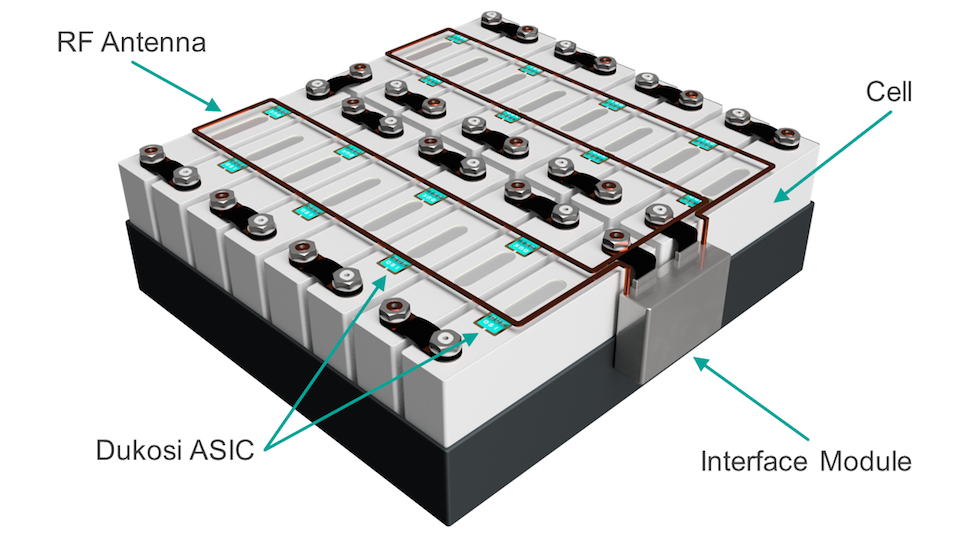
Edinburgh-based Dukosi is developing wireless technology that collects, processes and stores real-time data directly from the cell itself, and then transmits this information to allow the battery to be analysed and managed externally.
The technology could enable developers to improve the design, use and management of batteries for electric vehicles, industrial and grid energy storage applications, according to Joel Sylvester, chief technology officer at Dukosi.
“It gives you an ongoing, continuous review of what the state of that cell is: what its state of charge is; what its state of health is, and you can use that information to calculate what kind of power it can deliver,” said Sylvester.
Each chip can be attached to, or embedded within, a lithium ion cell. It has no additional wires or connectors, and uses radio frequency (RF) technology to communicate with chips in other cells.
The removal of the wiring harness reduces the weight of the pack, as well as the materials and assembly costs, said Sylvester. “It will also improve reliability, since every connection is a potential failure, and we could be removing 1000s per pack,” he said.
The chip improves the accuracy of measurements, and provides a history of each cell - including the voltage across the cell terminals, the temperature of the cell, and the current going into and out of the cell - from its original manufacture to the end of its useful life.
“It doesn’t matter how the cell is configured, what size or shape the battery pack has been configured in, or even if it is just sitting by itself in a box on a shelf, that chip is always live,” said Sylvester.
The technology could also allow data from thousands of individual cells, including those being used for different applications, to be directly compared. This could enable developers to spot patterns in how the batteries are being used, and how this impacts on their health.
The latest investment, which will enable the company to ready the chip for commercialisation, was made by IP Group, Scottish Investment Bank, and members of Par Equity.





Glasgow trial explores AR cues for autonomous road safety
They've ploughed into a few vulnerable road users in the past. Making that less likely will make it spectacularly easy to stop the traffic for...